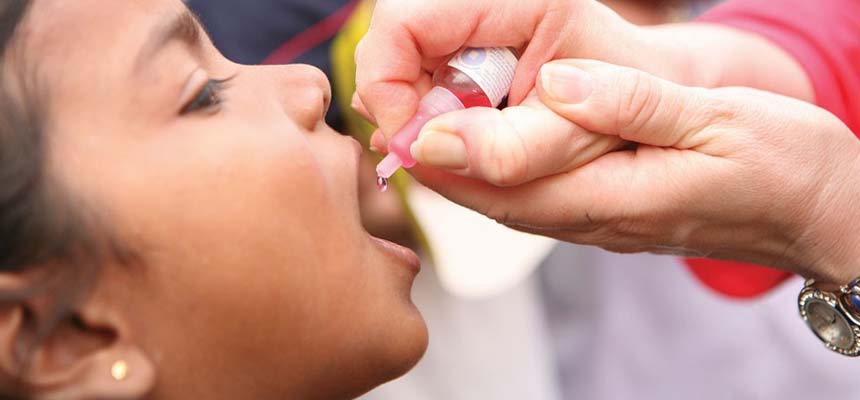Immunization: What You Should Know About It

With the World Immunization Week starting from April 24th, it's time we talk the A to Z of immunization. It is one of the major necessities of today, especially for pregnant women due to the increased rise of a number of known and unknown diseases. Excerpts from Dr Archana Dhawan Bajaj, Gynaecologist, Obstetrician and IVF Expert, Nurture IVF centre and Dr Madhulika Sinha, Senior Consultant Obstetrician and Gynaecologist, Aakash Healthcare Super Speciality Hospital.
![]() What is Immunisation?
What is Immunisation?
“Immunization is the physical protection against diseases and applies for anyone, be it infants, youngsters, adolescents, teenagers, women, men, anybody. When immunity decreases in elderly due to age and in adolescents due to hormonal change, then immunization plays a vital role”, says Dr Archana.

![]() Why is Immunisation essential?
Why is Immunisation essential?
According to Dr Madhulika, “Immunization is the injecting of antibodies inside your body to fight against various disease causing microbes. The antibodies are capable of fighting any type of injected virus or contracted disease so that the body is well equipped to fight the disease well in advance.”
![]() Starting Motherhood? Things you should Know
Starting Motherhood? Things you should Know
A woman who starts planning her pregnancy must be very sure of it. “The first dose that is given during pregnancy is the vaccine against tetanus which is absolutely mandatory and universally accepted”, guides Dr Bajaj.
Dr Madhulika elaborates on the kinds of vaccines: “Vaccines for women are classified as pre/post pregnancy and during pregnancy.
Vaccines given in pre/post period are termed as Live virus vaccines which are MMR and HPV. MMR vaccines against Measles, Mumps and Rubella. The other very important .jpg) vaccine is HPV which is to prevent the mother from risks of cervical cancer. This vaccine is ideally given in the age of 9 to 14 and can be given up to 45 years. Women who are about to get pregnant can also be given HPV but not during the course of pregnancy.
vaccine is HPV which is to prevent the mother from risks of cervical cancer. This vaccine is ideally given in the age of 9 to 14 and can be given up to 45 years. Women who are about to get pregnant can also be given HPV but not during the course of pregnancy.
Vaccines given during pregnancy are termed Dead Virus Vaccine. These are Tetanus and Hepatitis B. Tetanus vaccine should be given twice, 4 to 6 weeks apart. The babies who are scheduled for delivery between September to December should be vaccinated against Influenza virus also as this is the time when influenza is on the rise. It should ideally be given in the second and third trimester which gives protection against all kinds of flu’s. If the mother has missed this vaccine during pregnancy then it can be given to the baby from 0-6 months of age.”
![]() Risks of Missing Immunization
Risks of Missing Immunization
“If the pregnant women contracts rubella virus during her pregnancy, it may begin with rashes, itchiness or seasonal cold but has disastrous effects on the baby. The child may suffer from calcification of eyes leading to visual impairment, small brain development, heart diseases or mental retardation. In rural settings where the cord is still cut with a blade, a woman not contracepted against tetanus may lead to the death of the child immediately after birth”, says Dr Archana.
“If other vaccines like Measles and Mumps is missed then it can be taken post pregnancy. If the mother is not immunized against Hepatitis B vaccine and contracts during her pregnancy, the blood may get infected and the child may directly contract Hepatitis + disease”, speaks Dr Madhulika.
Hence immunization becomes absolutely necessary for mothers to give good life to their children and to make them healthy and strong.
For Appointments : Dr Archana Dhawan Bajaj, Gynaecologist, Obstetrician and IVF Expert, Nurture IVF centre

 Disclaimer: Welthi.com does not guarantee any specific results as a result of the procedures mentioned here, and the results may vary from person to person.
Disclaimer: Welthi.com does not guarantee any specific results as a result of the procedures mentioned here, and the results may vary from person to person.









